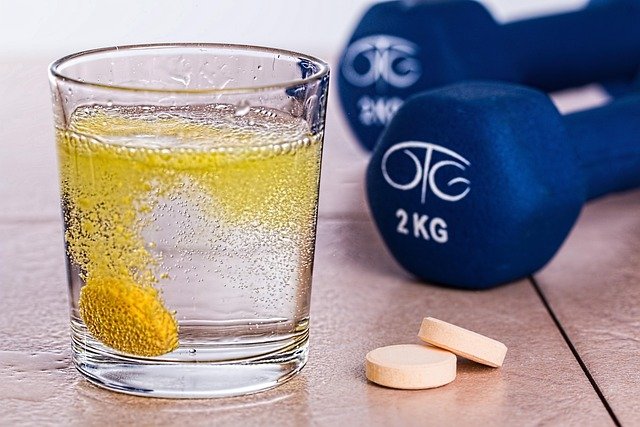Daily routines to support collagen production and functional strength
Developing daily routines that support collagen production and functional strength helps skin integrity, joint health, and overall movement quality. Small, consistent habits across nutrition, sleep, hydration, skincare, recovery, and mobility add up. This article outlines practical, evidence-aligned steps you can weave into a daily schedule to promote collagen synthesis, reduce chronic inflammation, and build usable strength for everyday tasks.

Daily routines that intentionally combine nutrition, movement, and restorative practices can support collagen production while improving functional strength. Collagen is a structural protein important for skin, tendons, ligaments, and bone matrix, and maintaining it requires building blocks (amino acids), cofactors (vitamins and minerals), and lifestyle conditions that favour repair—adequate sleep, hydration, reduced chronic inflammation, and targeted mechanical loading. Below are focused, actionable areas to include in a daily routine that balance aesthetics and performance without extreme measures.
How does nutrition support collagen synthesis?
A nutrition-focused routine emphasizes sufficient protein, vitamin C, zinc, and amino acids like glycine and proline. Aim for a balanced intake of lean proteins (fish, poultry, legumes), and include vitamin C–rich foods (citrus, berries, bell peppers) which act as cofactors in collagen formation. Collagen peptides or bone broth can supply specific amino acids, though whole-food protein sources are often adequate. Antioxidant-rich foods (dark leafy greens, colorful vegetables, nuts) help neutralize oxidative stress that can degrade collagen. Moderate carbohydrate intake supports training performance, while healthy fats (olive oil, fatty fish) support cell membranes and hormone balance. Spacing protein evenly across meals — for example 20–30 g per meal for many adults — helps maintain amino acid availability for tissue repair.
How does sleep affect recovery and collagen?
Quality sleep is a cornerstone of repair. Growth hormone and other anabolic processes that support tissue synthesis peak during deep sleep stages; chronic sleep restriction impairs protein synthesis and increases inflammatory markers. Establish a consistent sleep schedule, prioritize 7–9 hours for most adults, and create a sleep-friendly environment (cool, dark, low noise). Evening routines that limit screens and caffeine and include relaxation practices (light stretching, breathing) can improve sleep onset and depth, indirectly supporting collagen turnover and muscle recovery.
How does hydration support skin and movement?
Hydration influences skin turgor, nutrient transport, and joint lubrication. Daily fluid needs vary by body size, activity level, and climate, but aim to sip fluids consistently through the day rather than relying on large, infrequent intakes. Include electrolytes if you sweat heavily during training. Hydrating foods — soups, fruits, and vegetables — contribute to total intake and provide minerals that support repair. Note: hydration alone doesn’t create collagen but supports the cellular environment where synthesis occurs.
What skincare habits support collagen health?
Topical care can protect existing collagen and reduce external stressors that accelerate breakdown. Use broad-spectrum sunscreen daily to limit UV-related collagen degradation. Incorporate products with proven ingredients like topical vitamin C (antioxidant and synthesis cofactor) and retinoids (which can stimulate collagen remodeling) as tolerated. Gentle cleansing, avoiding over-exfoliation, and maintaining a simple barrier-supporting routine (moisturizer with ceramides or hyaluronic acid) help preserve skin integrity. Professional treatments (e.g., microneedling, lasers) can stimulate collagen but should be considered with a qualified provider.
How to build functional strength and mobility?
Functional strength focuses on movement patterns that transfer to daily tasks: squatting, hinging, pushing, pulling, carrying, and rotational control. Integrate compound resistance exercises (deadlifts, squats, rows) at moderate loads and prioritize quality movement over heavy loading if your goal is joint health and daily function. Add mobility work (dynamic warm-ups, thoracic rotation, hip and ankle mobility drills) to maintain range of motion and reduce compensatory patterns that stress connective tissue. Endurance activities (walking, cycling) can complement strength work, improving circulation and recovery.
How can antioxidants and inflammation management be part of a routine?
Chronic inflammation accelerates collagen breakdown and impairs repair. Manage inflammation through diet (anti-inflammatory fats, antioxidants from fruits and vegetables), sleep, stress reduction (mindfulness, slow breathing), and consistent, appropriately dosed exercise. Incorporate antioxidants via whole foods rather than relying solely on supplements; examples include berries, green tea, nuts, and brightly colored vegetables. If you have chronic inflammatory conditions, consult a healthcare professional for tailored strategies.
This article is for informational purposes only and should not be considered medical advice. Please consult a qualified healthcare professional for personalized guidance and treatment.
Conclusion
A daily routine that combines targeted nutrition, consistent sleep, steady hydration, protective skincare, structured strength and mobility training, and inflammation-aware habits creates a supportive environment for collagen maintenance and functional strength. Consistency and gradual progression—both in training intensity and in building daily habits—are more effective than dramatic short-term changes. Small, sustainable adjustments to meals, movement, and restorative practices add up to measurable benefits for tissue health and everyday capability.





